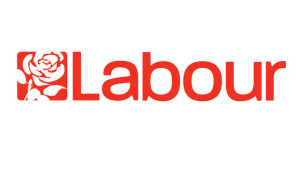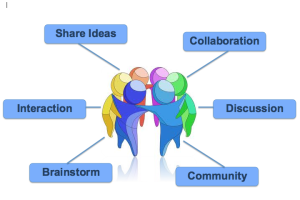 We’ve got a problem (well 4 actually), when it comes to medical education! The first is this: Jeremy Hunt is promising loads of new places at medical school – I know this doesn’t sound like a problem, it sounds like a solution. But the truth is, once you actually do some number crunching, the new places won’t even account for the losses we will have due to retirement over the next 10 years, let alone account for the increased need there is in the system. So…..we’re still going to be short of doctors. Unfortunately – there isn’t a political appetite to increase these numbers further, and with our exit from the EU we’re genuinely facing an ongoing crisis.
We’ve got a problem (well 4 actually), when it comes to medical education! The first is this: Jeremy Hunt is promising loads of new places at medical school – I know this doesn’t sound like a problem, it sounds like a solution. But the truth is, once you actually do some number crunching, the new places won’t even account for the losses we will have due to retirement over the next 10 years, let alone account for the increased need there is in the system. So…..we’re still going to be short of doctors. Unfortunately – there isn’t a political appetite to increase these numbers further, and with our exit from the EU we’re genuinely facing an ongoing crisis.
The next problem is therefore that we need to restructure our workforce in quite a creative way, to work more smartly and differently, with a flexible workforce, but due to the pressures upon the system, there is little room for people to put much time or imagination into this and there is also a huge leap of faith involved. There is simply not the evidence base in place to support the leap we are asking GPs, in particular, to take in restructuring their practices and not replace GPs with GPs, but with combinations of paramedics, advanced practitioners, physician assistants, physics, mental health workers, health coaches and the like. However, the issue is that the system finds itself, like Indiana Jones, at the edge of a cliff, with no way back and the only thing for it is to step into the unknown and hope that God supplies the stepping stones…..Those in leadership positions are going to have be given space and grace to try some things, get it wrong and try again……One of the vital things that will be involved is proper engagement with the communities we serve. Clinicians and the general population need to have a better and deeper understanding of one another. There is a huge language void to be bridged and a collaboration that is needed in understanding how services can be more helpfully redesigned for the benefit of everybody. It also means where there are are difficult decisions to be made, there are no cloak and daggers or suspicion, but honest, open communication in the light of day that builds trust and partnership.
creative way, to work more smartly and differently, with a flexible workforce, but due to the pressures upon the system, there is little room for people to put much time or imagination into this and there is also a huge leap of faith involved. There is simply not the evidence base in place to support the leap we are asking GPs, in particular, to take in restructuring their practices and not replace GPs with GPs, but with combinations of paramedics, advanced practitioners, physician assistants, physics, mental health workers, health coaches and the like. However, the issue is that the system finds itself, like Indiana Jones, at the edge of a cliff, with no way back and the only thing for it is to step into the unknown and hope that God supplies the stepping stones…..Those in leadership positions are going to have be given space and grace to try some things, get it wrong and try again……One of the vital things that will be involved is proper engagement with the communities we serve. Clinicians and the general population need to have a better and deeper understanding of one another. There is a huge language void to be bridged and a collaboration that is needed in understanding how services can be more helpfully redesigned for the benefit of everybody. It also means where there are are difficult decisions to be made, there are no cloak and daggers or suspicion, but honest, open communication in the light of day that builds trust and partnership.
Our third issue is that with the vast increase in hyper-specialism and the loss of generalism from training programmes after qualification. Rural and remote places in particular are unable to get the staff mix necessary to run successful and safe services. This is due to a lack of foresight from centralised diktats and various guidance from NICE and the Royal Colleges that favours this approach. Health Education England must be brave enough to allow areas to be innovative in the training they provide. Our needs in Morecambe Bay are utterly different to those of Nottingham or Central London and we need new training programmes that will cater for this.
 Fourthly, our medical schools are delivering a curriculum, designed centrally but based on yesterdays NHS. There is not enough creative vision around the curriculum to build the right kind of future doctors. There is still far too much focus on illness and disease and no where near enough thought or teaching about wellness, healthy lifestyles, nutrition and non-pharmacological options. The role of the future doctor is much more population focused and digitally savvy. It is our medical schools more than anywhere else that carry the responsibility to ensure the future NHS is catered for. We need a radical shake up in medical education and some brave people to rewrite the curriculum that will enable medical schools to be more creative and engaging in helping to raise the doctors we need for the future.
Fourthly, our medical schools are delivering a curriculum, designed centrally but based on yesterdays NHS. There is not enough creative vision around the curriculum to build the right kind of future doctors. There is still far too much focus on illness and disease and no where near enough thought or teaching about wellness, healthy lifestyles, nutrition and non-pharmacological options. The role of the future doctor is much more population focused and digitally savvy. It is our medical schools more than anywhere else that carry the responsibility to ensure the future NHS is catered for. We need a radical shake up in medical education and some brave people to rewrite the curriculum that will enable medical schools to be more creative and engaging in helping to raise the doctors we need for the future.




